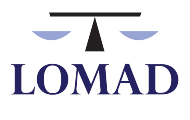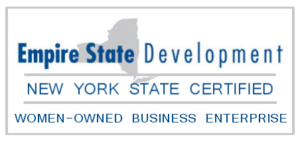New York State Workers’ Compensation Board’s Regulatory Agenda May Include Significant Changes to Limit an Employer’s Right to Cross-Examination.
Almost two weeks ago I published a copy of the Board’s Regulatory Agenda on my group, New York Workers’ Compensation Forum. Among the items in the agenda was the following proposed change:
6. Add a new part 300.39 to establish rules for the cross-examination of medical witnesses and to repeal section 300.10(c).
12 NYCRR §300.10(c), as most defense attorneys know, is one of the last tools remaining in our dwindling tool chest. It requires a judge to permit an employer or carrier to cross examine a claimant’s doctor:
(c) When the employer or its carrier or special fund desires to produce for cross-examination an attending physician whose report is on file, the referee shall grant an adjournment for such purpose…
The Board has not yet published a draft of the regulation it intends to propose so we do not yet know what the new rule will require. However, in 2010, a similar change was contemplated and a draft of a new regulation, to be implemented after repeal of 300.10(c), was circulated by organizations like WorkComp Central and the NY Business Council.
The 2010 draft regulation would have created procedural requirements like filing a written request to cross examine a physician whose report is in eCase within 45 days of the filing of the report. It would also give the judge the power to “determine whether the requested cross-examination is reasonably necessary for the full presentation of the case or issue.” Additionally, appeals of a denial would be considered interlocutory.
A copy of the 2010 draft is reproduced below and can also be found at the following link: https://getmad.today/wp-contentwww.bcnys.org/inside/wc/2010/crossexamregs.pdf.
300.39 Cross examination of medical witnesses in accepted or established claims.
(a) All requests for cross-examination of a treating medical provider, independent medical examiner, or a physician designated by the Board to examine a claimant pursuant to section 13(e) of the Workers’ Compensation Law, shall be made in writing using the form prescribed by the Chair to request further action or on the record at a hearing no later than forty-five days from the date the Board received the medical report(s) which is the subject of the cross-examination. All requests shall specify
(1) the name and address of the medical witness the party requests to cross-examine;
(2) the date of the report(s) which forms the basis for the cross examination, and
(3) the basis for requesting cross-examination, including any specific facts reasonably likely to be elicited on cross-examination that would undermine the witness’s medical opinion relative to the report(s).
(b) Except as provided in Workers’ Compensation Law Section 13 (e), the Workers’ Compensation Law Judge shall determine whether the requested cross-examination is reasonably necessary for the full presentation of the case or issue. If a party identifies specific evidence that, if credited by the Worker’s Compensation Law Judge, would likely result in rejection of the witness’s medical opinion, cross-examination shall be granted. If a party fails to timely request cross-examination or to identify specific evidence that would likely result in rejection of the witness’s medical opinion, cross-examination shall be denied. Where the party has produced a medical opinion that contains a viable difference from or is contrary to the witness’s medical opinion with respect to the particular issue to be determined, the party shall presumptively be entitled to cross-examination.
(c) Cross-examination shall be taken at a hearing or by deposition within forty-five days of the order granting the cross-examination; provided however that if the claimant is not represented by legal counsel, the cross-examination shall be taken at a hearing.
(d) If the medical witness for the insurance carrier fails to appear for cross-examination as scheduled, the insurance carrier’s right to introduce its independent medical report from the witness or to have the witness testify at a hearing or by deposition shall be deemed waived, unless the insurance carrier shows by affidavit good cause why the witness failed to appear, and that it acted in good faith and with due diligence.
(e) If the medical witness for the claimant does not appear for cross-examination as scheduled, then an extension of time to take testimony shall be granted only where the Worker’s Compensation Law Judge finds that the witness could not have appeared within that period because of good cause, and that the party seeking the extension acted in good faith and with due diligence. If the extension is granted, the testimony shall be taken by deposition at the earliest date practicable but not more than thirty days after the date the witness was originally scheduled to testify. Such deposition may be taken by telephone. The insurance carrier is solely responsible for enforcing a subpoena to compel the appearance of the witness at the deposition. In the event that the insurance carrier fails to enforce a subpoena to compel appearance of the witness at the deposition, the report of the witness shall remain in evidence. For any such medical witness authorized by the Chair to treat or conduct independent medical examination of injured workers or both, the Board shall promptly direct the witness to appear at such deposition. If the medical witness does not appear at such deposition, the testimony of the witness shall not be rescheduled and the Chair shall take such action as deemed appropriate with respect to the witness’s authorization to treat or conduct independent medical examinations of injured workers or both.
(f) Any order granting or denying cross-examination under this section shall be interlocutory and shall not be reviewable by the Board under Workers’ Compensation Law Section 23 until a final decision on the substantive disputed issue(s) has been made by the Workers’ Compensation Law Judge.
(g) Requests for cross-examination under this section that have been instituted or continued without reasonable ground are subject to assessments under Workers’ Compensation Law Section 114-a (3) in addition to any other penalty permitted under the Workers’ Compensation Law.
(h) For purposes of this section, “insurance carrier” shall include those entities under Workers’ Compensation Law Section 2 (12), the Uninsured Employers’ Fund under Workers’ Compensation Law Section 26-a (2), and the Fund for Reopened Cases under Workers’ Compensation Law Section 25-a (3).
As indicated by the Board in connection with its publication ‘in the NYS Register of its 2015 Regulatory Agenda you can get additional information or submit written comments concerning this and other items on the Regulatory Agenda by contacting Heather M. MacMaster, Associate Attorney, Workers’ Compensation Board, 328 State St., Schenectady, NY 12305-2318, (518) 486-9564, e-mail: regulations@wcb.ny.gov.

